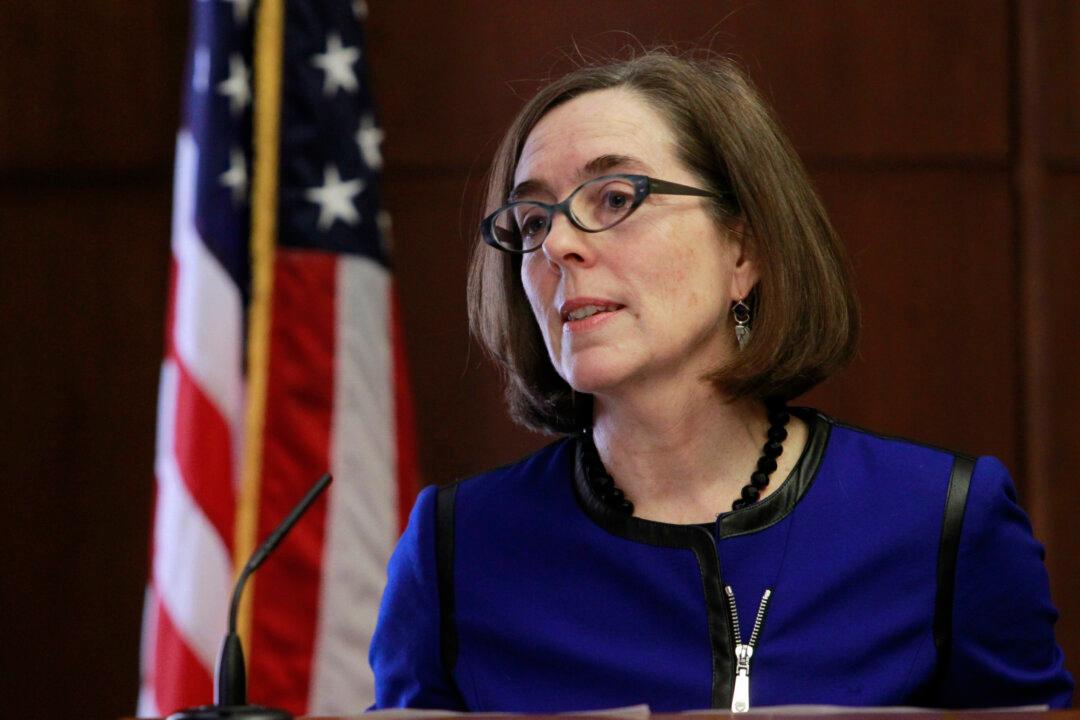A judge has ordered a pause on early releases of prisoners who committed crimes as juveniles, granting in part the relief sought in a lawsuit filed against Oregon Gov. Kate Brown, a Democrat, by two district attorneys and four family members of homicide victims.
Brown has granted early release to nearly 1,200 convicted felons, including 10 convicted murderers, since March 1, 2020.





